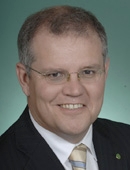Barbara Fuller is one of a large contingent of NSW polio campaigners heading to Canberra on Wednesday 31 October 2012. As well as telling her local Member about the late effects of polio, how they affect her, and what services she and her fellow polio survivors need, Barbara will also be presenting Polio Australia’s Petition to her Federal Parliamentarian.

Left: A photograph of Barbara taken the week before she was hospitalised with polio in 1952.
Barbara contracted polio not long after her seventeenth birthday. She writes:
In 1952, at age 17, I was a hairdressing apprentice, working in the City and living with my family at Punchbowl, a south-west suburb of Sydney. I became very ill, I couldn’t breathe, I couldn’t swallow, and I couldn’t speak.
After 12 months in hospital I spent another 12 months at home, with physio once a week and my mother giving me exercises in breathing, walking and massage every day (I have continued the walking for 60 years).
I then returned to my hairdressing job at the same city saloon. I am sure that the long walk to the train station each morning and night and being on my feet all day at work helped considerably in my rehabilitation of leg muscles and breathing.
The boyfriend, who I had before I contracted polio, was still around, so I married him, had three sons and lived a normal family life.
What is a memorable polio experience?
I was originally incorrectly diagnosed with diphtheria and admitted to the Prince Henry Infectious Diseases (Coast) Hospital at Little Bay. There, after swab tests, I was diagnosed with bulbar polio, which makes up 2% to 19% of polio cases and affects the central nervous system of the brain, paralysing the respiratory muscles. Bulbar polio affects breathing, speaking and swallowing, and has a mortality rate of from 25% to 75%. I spent the next 12 months in hospital and most of that time I was in an iron lung which did my breathing for me. I am lucky, I have no memory, of the bad things anyway, of what went on over that 12 months at the “Coast Hospital”. I only remember the good people, the hospital staff, and my mother (we were only allowed one visitors’ day a week) who brought me through that part of my forgotten life. My mother died soon after I returned to work and I had to look after my father, who took her death very hard, so I just had to get myself well and get on with my life.
How have the late effects of polio impacted on you?
My Doctor at the Coast Hospital warned me that I would have problems later in life and all my life I have had to be very careful of how or what I eat, swallow or breathe. It has become part of my normal living. But over the last few years problems have become much more acute. My problems then and now are eating and breathing. No singing (I missed that), no shouting (the kids liked that), small serve meals (I am always last to finish at mealtime), watching what I eat (I hate steak), and cold water stops my breathing (which I find scary).
Why are you going to Canberra?
Polio survivors from the 1930s, 1940s and 1950s epidemics are now experiencing the late effects of polio, however, members of the medical profession who are younger than 50 years old know nothing about polio as it has not been in their education curriculum for many years. Even worse is that some medical treatments are making the problems worse. In Canberra, I hope to be able to convince our parliamentary leaders to support us by having more education to identify and treat the late effects of polio.
Which Member of Parliament are you meeting with?
 Mr Scott Morrison MP
Mr Scott Morrison MP
Member for Cook, New South Wales
Party: Liberal Party of Australia
Chamber: House of Representatives
Support Barbara and the “We’re Still Here!” campaign by sending her a message here.
Return to “We’re Still Here!” Campaign Heroes








